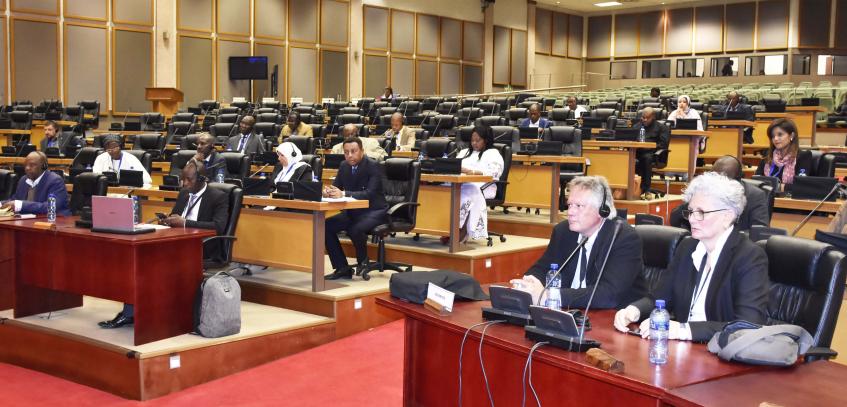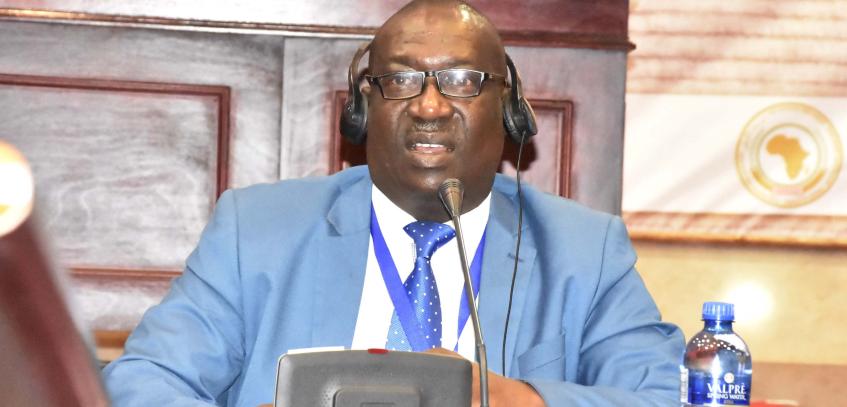Extreme weather conditions as a result of climate change are disproportionately affecting the poorest and most marginalised communities in Africa as they do not have the capacity and resources to adapt and mitigate the impact of climate change.
This was revealed at the joint sitting of the Pan-African Parliament (PAP) Committee on Justice and Human Rights Committee; Committee on Rules, Discipline and Privileges; Commitee on Rural Economy, Agriculture, Natural Resources and Environment; and Committee on Education, Culture, Tourism and Human Resources. The sitting of the PAP Permanent Committees will run until 02 September 2022 under the African Union theme of 2022: “Building resilience in nutrition on the African continent: Accelerate the human capital, social and economic development.”
In a presentation to the Joint Sitting, an expert from the University of Pretoria’s Centre for Human Rights said:
“Several African States must deal with serious threats to food security, loss of houses, destruction of infrastructure and debilitating droughts. The marginalized, poor and vulnerable communities in these regions are bearing the brunt of climate change as they do not have the requisite capacity to adapt. States, therefore, have obligations to protect the enjoyment of human rights from the harm caused by climate disasters. The adverse impact of climate change on human rights gives rise to State obligations to prevent harm and to mitigate the effects to the extent of their capacities.”
Chairperson of the Justice and Human Rights Committee Hon Jean Marie Nibirantije said:
“As PAP we are committed to protecting the environment against adverse effects of climate change hence we need to go green. We are not doing this for ourselves only but also for future generations. For this huge task we need funding and Members States are encouraged to have specific budgets for this.”
Meanwhile, in an engagement during the same meeting, UN Independent Expert on the Enjoyment of Rights by Persons with Albinism Ms Muluka-Anne Miti-Drummond hailed the proposed PAP guidelines on harmful practices related to accusations of witchcraft and ritual attacks.
“The PAP guidelines provide a holistic approach to combating harmful practices related to accusations of witchcraft and ritual attacks. The guidelines provide measures to be taken by states which include those aimed at ensuring a coordinated response, those aimed at ensuring an enabling legal environment for the eradication of these practices, as well as non legal and community based responses,” said Ms Muluka-Anne Miti-Drummond.
The elaborate guidelines proposed by the PAP recommend the review of laws, the repeal of inappropriate laws, as well as the adoption of appropriate laws. For example, those relating to trafficking in body parts, possession of body parts and the regulation of religious and traditional healers. None legal and community based measures recommended by the guidelines include education and awareness raising targeting the general population, the health sector, the justice sector, educators and the media.
“We will do our best as a Parliament to ensure that these awful practices are banned in our countries. The PAP guidelines are an important tool because we must protect our brothers and sisters from such inhuman practices,” said Hon Jean Marie Nibirantije, Chairperson of the Justice and Human Rights Committee.
-Ends-











